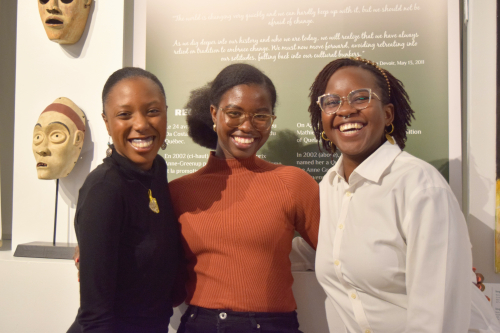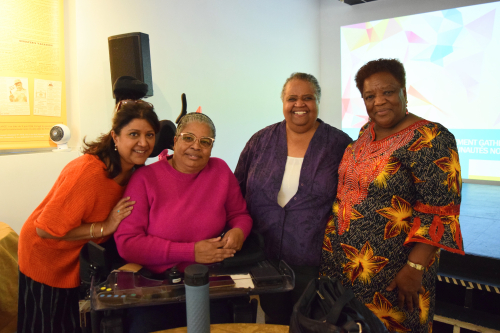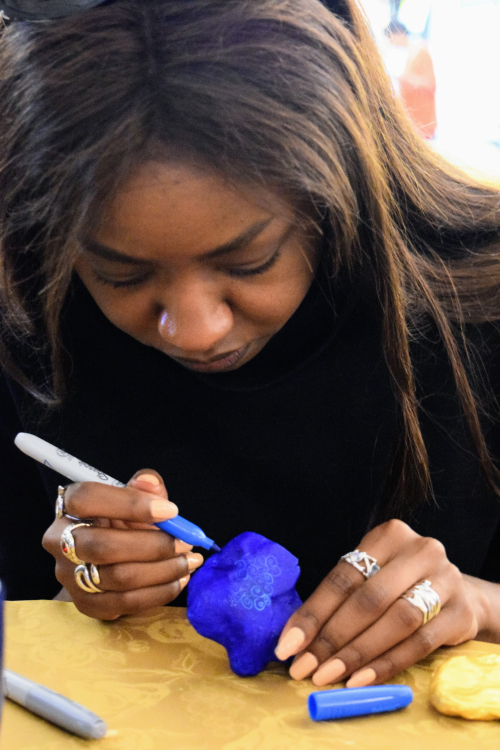
Event hosted by the ISoN helps bridge the gap between academia and community in addressing the critical issue of anti-Black racism.
On September 26, 2023, the Ingram School of Nursing’s (ISoN) Anti-Black Racism Committee hosted a diverse group of people from various Black community organizations at Afro Musée, with a delicious meal catered by Chef Sean SNS Catering. “This initiative was a significant step towards bridging the gap between academia and community in addressing the critical issue of anti-Black racism while fostering a more inclusive and equitable nursing education and healthcare environment,” explains Josée Lavallée, Director of the ISoN’s Office of Social Accountability in Nursing.
ISoN facilitators presented an update and discussion of the ISoN’s Office of Social Accountability in Nursing’s Black Community Engagement initiative. This was followed by a rich and enlightening dialogue about the presence and impact of anti-Black racism both in nursing education and in the Quebec healthcare system. Several challenges were identified including disparities in educational opportunities, scarcity of research related to anti-Black racism in nursing education and healthcare in Quebec, unequal access to resources, and instances of discrimination and bias within the field.
Participants were invited to take part in a strengths-based, inspiring art activity, drawing on rocks that had been handmade and painted by ISoN students. Reflecting our partnership with and commitment to diverse communities, these rocks will be on display at the ISoN.
Building on the momentum generated by this event, the ISoN is in the process of identifying three distinct workgroups that will focus on continued ways for community members, faculty, and students to engage with the School. “As nurses, we have a crucial role to play in addressing anti-Black racism. As part of the ISoN Black Community Engagement Initiative, our goal is to strengthen long-term reciprocal partnerships with Black community members of Montreal, to make actionable change based on Black community voices, and to engage ISoN faculty and students in this vital work,” concludes Ms. Lavallée.




